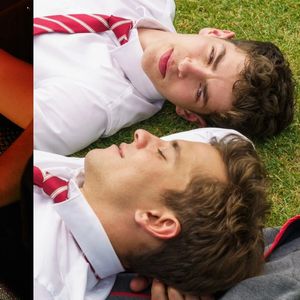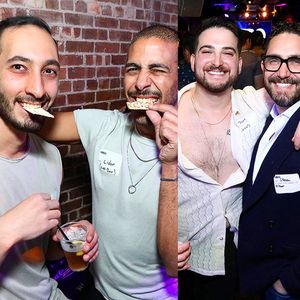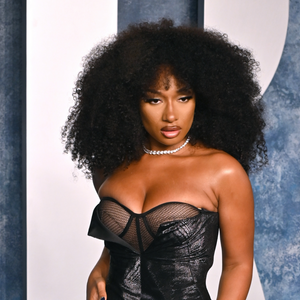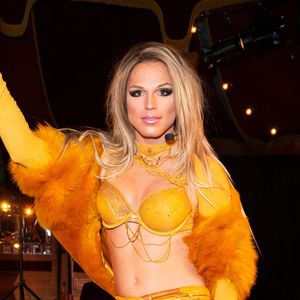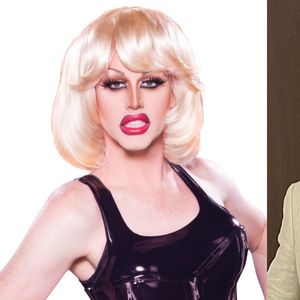Sofa," there's nothing sleepy about Havana's Malecon
"
>
They call it
''The Great Sofa'' because hundreds of Cubans sit here day
and night, year-round. The fabled Malecon seawall, a
concrete promenade separating a jammed six-lane
boulevard and an often-angry Atlantic, is always
crowded--but never with the same crowd.
''It's like New
York,'' said Fernando Roldan, a 37-year-old masseur who
was guzzling rum as he lounged on the seawall after midnight
one weekend. ''It never sleeps.''
A typical dawn
finds fishermen on the low wall over the waves, casting
into inky blue water glistening with runoff from a refinery
that billows black smoke in the distance.
Children heading
to school walk atop the wall, casting shadows as long as
the adults on the adjacent sidewalk. A woman faces the ocean
and crosses herself, mouthing a prayer before hurrying
on to work, while a brigade of street sweepers fans
out--sometimes steering their wooden brooms around
chatty drunks still going from the night before.
U.S. military
engineers first began building the Malecon in 1901, paving
over scrub brush while American forces still occupied Cuba
following the Spanish-American War. Today, it
stretches four miles from Old Havana west, past the
office of the American mission and the black flags Cuba
flies outside its windows, and on to the Almendares River.
In the late
morning one Friday, Luis Alvarez, a 25-year-old culinary
student in a red baseball cap faded almost colorless by the
sun, sat staring into the waves lapping rocks carpeted
with algae. Occasionally he sprang to his feet and
paced the wall, throwing bits of bread--a lopsided
roll he gets daily with his ration card--into the
surf.
Most fishermen
use makeshift poles, but Alvarez had nothing but a spool
of fishing line and a naked hook. He said men in wet suits
and scuba masks obtain permits to ply the waters away
from shore hunting for marlin, sometimes spooking
smaller tiger fish back into the rocks where they
might be hooked using the bread crumbs.
''It takes
hours,'' he said.
Alvarez said he
hoped to catch at least two fish because it was his
father's birthday. One he could cook, he explained, and the
second would fetch enough money for a bottle of rum to
go with dinner.
''I haven't
cooked fish in a long time. I always sell whatever I
catch,'' he said.
A few hours
later, a carpentry apprentice named Jose Antonio looked at
the same crystal blue surf and dreamed of a makeshift raft
to take him to Florida, 90 miles north.
''Tourists come
and see beaches, perfect old Havana. They don't see that
it is a lie,'' said the 30-year-old, who wouldn't give his
last name. ''The people of Cuba suffer.''
Jose Antonio said
he has been passed over for government work because he
is black, even though Cuban law prohibits racial
discrimination. He said he would be willing to leave
behind his wife and two small children just to try to
make it to U.S. soil.
''I want to be
free,'' he said.
Farther to the
west, fruit seller Alfredo Crespo set his 6-month-old
daughter Claudia's stroller on the Malecon's wall. The
little girl gazed at the ocean, her large brown eyes
wide with wonder.
''This is better
than any park,'' Crespo said.
Running the
length of the Malecon, the low wall over the waves features
the perfect dimensions for sitting--2 feet wide by
2-1/2 feet tall. Men walking on or alongside it often
shed their shirts, wearing them over their heads and
necks to provide some relief from the blistering sun.
Muscle-bound teenagers sometimes do sit-ups on it, while
couples jog by.
Musicians with
trombones, trumpets, and violins play all day, hoping for
tips from passing tourists. Far more common, however, are
those who strum guitars and sing or recite poetry for
pocket change--like Ulises Alfonso, a
37-year-old judo instructor.
''The traffic in
the background, the women walking. It's like a game of
ping pong,'' he said watching ''Coco Taxis,'' or motorcycles
enclosed under egg-shaped yellow roofs, dart around
the Studebakers and other American classics on
Malecon's boulevard.
Men here spend
hours yelling out compliments, or ''piropos,'' to women
who walk by.
''You can't just
say 'hey, beautiful.' A Cuban woman won't pay you any
attention,'' Alfonso said. ''You have to
work--otherwise they won't look at you.''
Alfonso tossed
out phrases about mermaids walking on land. Passing women
paid him little mind.
''See?'' he
asked. ''It's not easy.''
Not far away, a
youngster with a backpack sidled up to an American.
''Where you from?'' he asked in English. Without breaking
stride, he then offered stolen cigars, marijuana and
sex with women for money.
Once exceedingly
common, solicitation on the Malecon by hustlers known as
''jineteros,'' or jockeys, has declined sharply as increased
tourism and subsidies from Venezuela and China have
helped Cuba recover from years of near economic ruin
following the Soviet Union's collapse in 1991, and the
island's subsequent loss of billions of dollars in
preferential trade and aid.
By dusk families
can be found swimming among the rocks below the Malecon.
Youngsters scamper up the wall to fling themselves into the
waves.
During summer
blackouts thousands flood the seawall after dark and stay
all night. They suck down beers and gulp rum straight from
the bottle, enjoying a breeze from the ocean that the
stilled fans and silent air conditioners in their
homes cannot provide.
If the wind is
blowing too hard, however, large waves drive loiters and
swimmers away, crashing over the wall and littering the
far-right lane of traffic with seaweed and driftwood.
Most common at
any hour on the Malecon are couples on dates who come to
be seen, make out, and enjoy free views of the ocean.
''There are other
malecons, but I don't think there is another in the
world like this,'' said Alejandro Tejada, a 21-year-old
student who was locked in a late-night embrace with
his girlfriend of five months, Cosete.
After 11 p.m. a
section across from the luxurious Hotel Nacional fills
with gay men, including Cubans and foreign tourists.
The Malecon is
considered a public space where loitering is legal. Still,
many who come for the gay scene say the police harass them,
even handing out fines.
''The police are
antigay. They hate us,'' said Lorenzo Rodriguez, a drag
queen in white lace and a long brown wig.
Jose Manuel, a
health worker and former soldier who fought in Angola when
Cuba joined that country's war for independence in the
1980s, said he is a secretly gay member of a club for
communist veterans. The 46-year-old didn't want his
full name published because he said his secret could cost
him his party affiliation, maybe even his job.
''I'm not
political,'' he said. ''But I've got to keep my status.''
Jose Manuel said
he doesn't like spending nights at the Malecon, but
comes several times a month because he has nowhere else to
go to pick up men.
''There are no
gay discos,'' he said. ''Even if there were, Cubans
couldn't afford them. They would only be for tourists.''
(Will Weissert, AP)


































































